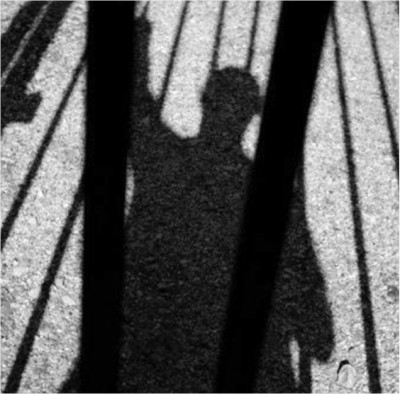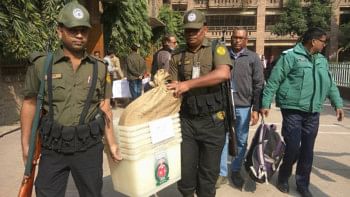Custodial torture: A new beginning?

Photo: Sami Sarkis
If any reminding was necessary, torture in custody on political grounds and directions was a reprehensible feature of the BNP Jamaat Alliance Government. I know this for a fact and can vouch for it first-hand based on my own personal experience as can I am certain, individuals such as Muntasir Mamun, Shahriar Kabir, Mohiudding Khan Alamgir, Bahauddin Nasim, BSS and Reuters Correspondent of that time, Enam and a vast number of others.
All the above news items made it to the national media but I suspect and fear that there are numerous instances of custodial violence and torture involving citizens that take place all over Bangladesh but never make it to the national, let alone local media. So much for Article 7 of our Constitution that holds that all powers of the Republic are vested in/belong to the people and yet these "owners" are often overlooked and forgotten!
As the current government completes its second year in office, for the first time in its tenure there has been an allegation of torture in custody and this has been made by Salahuddin Quader Chowdhury, a high profile war crimes suspect. It is interesting that none of the other individuals who have been taken in on specific charges (as opposed to Section 54 during the BNP Jamaat tenure involving myself and other individuals) over the past two years of the AL government have made any such allegations of custodial torture.
I have followed with interest the various reports in the media on this allegation of torture. Whilst SQC himself and his family have lamented and alleged that he was subjected to torture in custody and have said that "this is humiliating for a politician and an MP."
The police have refuted the allegations and an official is quoted to have said: "He is a parliamentarian. Why would we torture him? We're mindful of the law, his social status and police code during his interrogation."
Implicit in both the above statements is the sad fact and unacceptable assumption and mindset that somehow there are two codes to our law -- one that applies to high profile elites and the other for the common man or citizen.
Are we then to take it that it is okay to torture in custody common citizens who do not have the "requisite" social status? This is an example of the disconnect that exists between what the law actually states and what even our lawmakers and administrative servants of the Republic think or perceive what it states.
The unprecedented and monumental verdict in favour of the AL and Moha Jote in the December 208 elections was on the one hand a massive popular rejection of the corruption, patronisation of terrorism and complete disregard for rule of law by the BNP/Jamaat Alliance government and on the other high expectations from the AL on the basis of its slogan of, and refreshing commitment to, bringing about a discernable qualitative change in all spheres.
I have never had much time for, and in fact vigorously oppose and challenge the brand, culture and substance of politics that SQC typifies and promotes, but having said that, I would be most disappointed and deeply disturbed and concerned if the allegations of custodial torture on him are in fact true.
I say this as a fellow parliamentarian, a citizen of Bangladesh and most importantly, one who himself experienced more than once during BNP/Jamaat tenure how inhuman, degrading and even dehumanising, such acts can be.
I would, for the record, be just as disappointed if so-called justice was meted out to the most notorious criminals of our society through "encounters," a lame euphuism for extra-judicial killings.
For me and I hope for others who lived through the horrors of such treatments, it is not a question of giving it to the opposition in double dose and measure what was meted out to us. As Gandhi observed, an eye for an eye will only make the whole world blind.
We need to change and urgently overhaul the existing system so that first, no one ever has to face under any circumstance what we faced during our time in opposition and secondly, custody is indeed the safest place for a citizen and not one where it becomes the most brutal and dangerous, the darkest episode being the jail killings of our four national leaders in November, 1975.
I have confidence and faith in the current government and I also know at a personal level how strongly our Hon. prime minister values and upholds human rights, without exceptions, and this confidence encourages me to think that in the case of SQC, due process has not been deviated from.
What SQC's allegations do allow for, however, is a timely opportunity to revisit the question of custodial torture and deaths in Bangladesh and that too from the point of view of how due process and rule of law can be ensured for the common man. Our social and political elites also need to understand that the most effective protection for them too lies in upholding the rule of law for all.
Per Article 27 of our Constitution, we are all equal in the eyes of the law and are entitled to equal protection of the law. Article 35 (5) of our Constitution emphatically states that no citizen of the country shall be subjected to torture, or to cruel, inhuman or degrading punishment or treatment.
During Prime Minister Sheikh Hasina's first term, Bangladesh became a signatory to the UN Convention Against Torture on October 5, 1998, but as per provisions and requirements of this Convention, we have not as of date and for 12 years since, enacted appropriate domestic legislation to criminalise torture.
If we are indeed to make a fresh start and move away from business as usual mode and bring in qualitative changes on the issue of custodial torture, we must immediately enact in Parliament legislation criminalising torture.
Given that torture in custody is not easy to prove and substantiate as one would hardly expect law enforcement officials or instance to testify against their own colleagues, superiors and departments, the onus of proof must lie on the individual/department against whom allegations have been brought to prove that the victim was not subjected to torture whilst in their custody.
The High Court has also ruled and given specific directions and guidelines on remand conditions and how interrogations are to be conducted but sadly these are yet to be followed and practiced.
I hope that in the New Year session of the Parliament, the Private Member Bill that I have proposed with respect to the above and which has also been vetted by the Committee will in fact not only be placed but also enacted as law. Mere legislation by itself will, however, not bring about meaningful change unless it is complemented by political will, but a law is a necessary first step.
Now that would indeed be a new beginning and one that would surely add immense value, substance and credibility to the agenda for change that we campaigned so vigorously on prior to the elections to the 9th Parliament and one which the people of this country so overwhelmingly and whole-heartedly approved and endorsed through ballots.


 For all latest news, follow The Daily Star's Google News channel.
For all latest news, follow The Daily Star's Google News channel. 



Comments